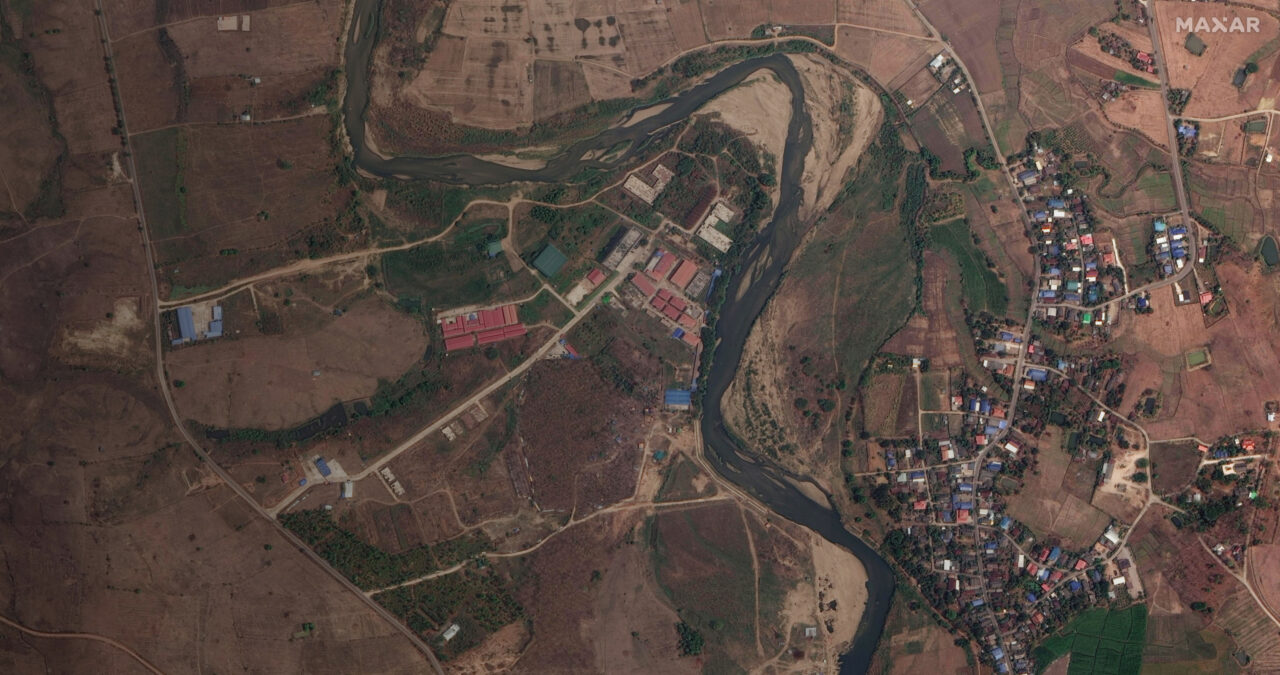
Forced Scamming
Migrant workers are being trafficked to Southeast Asia and forced to conduct scams online for up to 20 hours a day, six days a week. Those who fail to meet targets are barely fed, receive no medical attention and are often abused. A steady stream of suicides and other mysterious deaths have been reported from the compounds where victims are held.
Forced scamming is one of the most complex and fastest-growing forms of modern slavery in the world.
Criminals use social media platforms to falsely advertise lucrative jobs with good salaries and ideal working conditions. Traffickers will frequently arrange whatever accommodations are necessary to make the offer too good to refuse. When the victims arrive, perpetrators confiscate their passports, identification documents and cellphones to prevent them from leaving or calling for help. They are not allowed to leave and are frequently abused and beaten.
While Cambodia has initially emerged as a primary hotspot, exploitation has also been reported in Laos, Myanmar and the Philippines. Some experts suggest that the industry may be twice as large in Myanmar as in Cambodia, with criminal groups finding cover behind the country’s political and economic instability.

Fake, white-collar jobs are advertised with salary offers that are hard to turn down. Qualified individuals, some educated and multilingual, start out with high hopes only to find themselves trapped.

Likely hundreds of thousands of workers enslaved regionally in the scamming industry.

From official estimates and witness testimonies, IJM estimates that over $16.4B is generated from this new form of trafficking every year in Cambodia alone.
Our Solution
A Proven Community Protection Model
Forced labor within criminal industries is difficult to detect and eradicate and many local governments lack the resources or knowledge to enforce the law. When traffickers experience no consequences, they can freely exploit and abuse vulnerable people.
But when perpetrators face accountability for their actions, crimes are significantly reduced. The result? Safer communities where people can expect to be safe from exploitation and forced labor slavery.
Our Response
IJM helps combat this crime in Cambodia, Indonesia, Thailand, Myanmar, the Philippines and Malaysia.
Our program office proactively coordinates with local government agencies and foreign embassies to help facilitate the rescue and repatriation of victims, seek accountability for perpetrators and connect with partners to provide legal and psychosocial support.
Together with our partners, we:
RESCUE VICTIMS: We identify people trapped in forced labor slavery, partner with local authorities to conduct rescue operations and ensure every victim is legally emancipated and receives government support.
BRING CRIMINALS TO JUSTICE: We advocate for police reports to be filed against traffickers, and support prosecution of slave holders.
RESTORE SURVIVORS: We create individualized care plans for each person to respond to trauma and pursue dignifying jobs and educational opportunities.
STRENGTHEN JUSTICE SYSTEMS: We provide hands-on mentoring for law enforcement, government officials and partner organizations. We also create social demand and advocate with state and national leaders to make ending slavery a top priority.
Our Results
IJM has helped remove, care for, and/or support victim identification for nearly 500 individuals who we determined to be victims of forced labor slavery within Southeast Asia’s scam compounds.
Our team regularly engages with governments in the Asia Pacific region and around the world, UN Agencies, private sector companies, research agencies and civil society to share learning and find ways to coordinate and respond to this issue more effectively.
IJM works with governments and local partners to strengthen protection for vulnerable workers in the Asia Pacific region. We support the efforts of our government partners to rescue and restore survivors, prosecute offenders and strengthen the justice and social service systems to ensure justice and aftercare support is accessible to all victims of labor trafficking.
Survivors Assisted/Supported
Perpetrators
Convicted
IJM in the News Around Forced Scamming
‘I was a slave’: Up to 100,000 held captive by Chinese cybercriminals in Cambodia
Source: LA Times
“Instead of getting fired for poor performance, you get physical punishments — forced push-ups and squats, tased, beaten, deprived of food, locked up in dark rooms or worse,” said Jacob Sims, country director for IJM Cambodia.
The gangs that kidnap Asians and force them to commit cyberfraud
Source: The Economist
“According to the Cambodian government, the syndicates employ between 80,000-100,000 foreigners—a reasonable but perhaps a conservative estimate", says Jacob Sims of IJM.
How the scammers targeting Australians are being scammed themselves
Source: The Sydney Morning Herald
IJM estimates that cybercrime syndicates generate up to $12 billion a year from slavery-fueled scamming operations in Cambodia alone... That is a massive amount of money leaving wealthy countries and going to transnational crime groups. It’s a globally compelling story when you understand the sheer scale of human and financial exploitation.
From Industrial-Scale Scam Centers, Trafficking Victims Are Being Forced to Steal Billions
Source: VICE World News
“From what we are hearing, on average a worker in these compounds generates $300-400 per day in profit for their employer,” he told VICE World News... “What is going on inside these scamming compounds feels like a true humanitarian crisis.”
Help protect vulnerable men and women from forced scamming
You can help rescue victims, help survivors heal, and protect others from ever being trafficked in the first place.
Learn more about our Casework
Violence Against Women and Children
Women and children are particularly vulnerable to violence when no laws are enforced to protect them.
Learn more about this articleDomestic Violence
Learn more about this articleSexual Violence
Learn more about this articleSlavery
Millions of men, women and children are trapped in modern-day slavery around the world.
Learn more about this articleSex Trafficking
Learn more about this articleLabor Trafficking
Learn more about this articleOnline Sexual Exploitation of Children
Learn more about this articleForced Scamming
Learn more about this articlePolice Abuse of Power
When police are free to misuse their power, vulnerable people are the ones who suffer from their violent actions and false accusations.
Learn more about this article